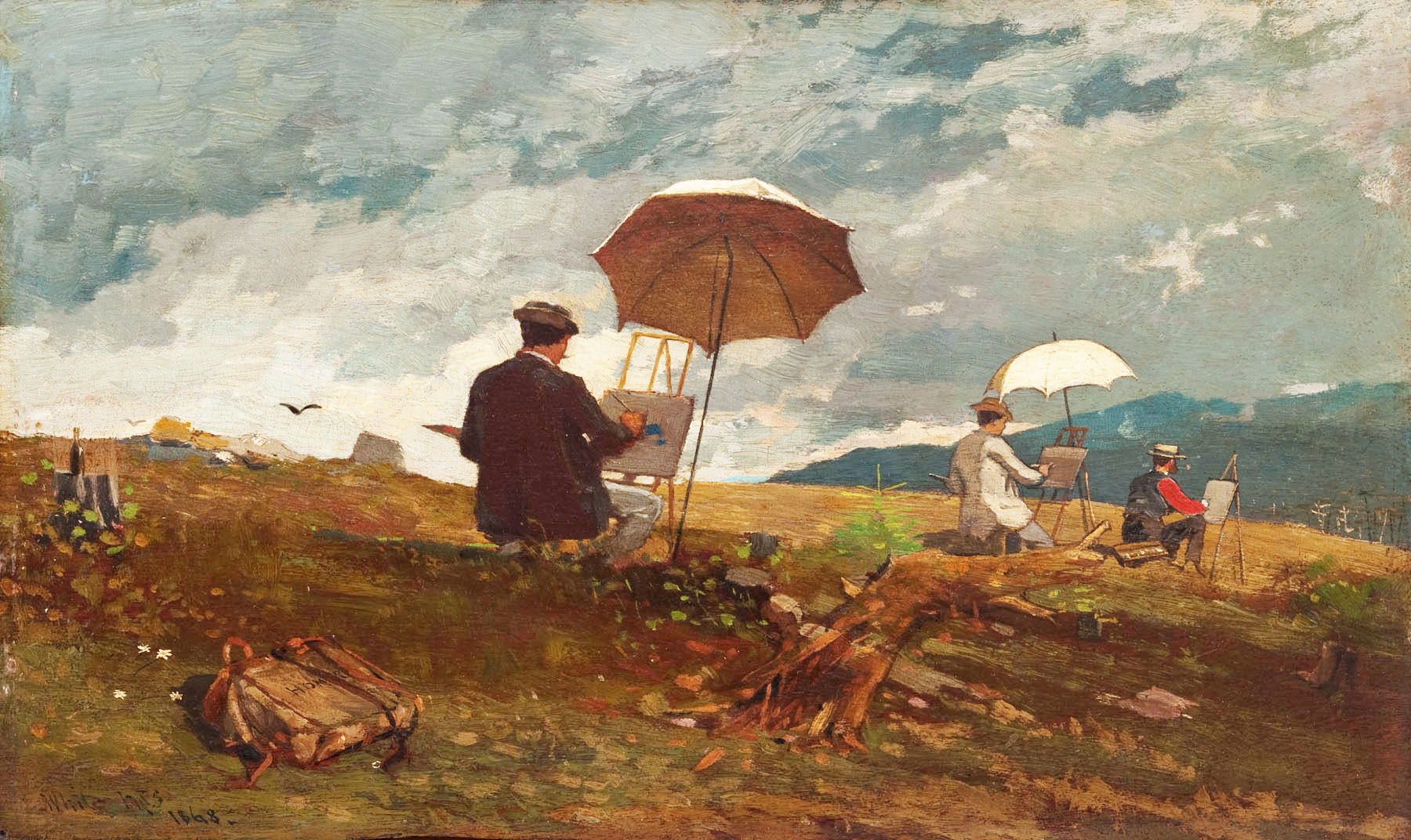
Artists Sketching in the White Mountains, Winslow Homer, 1868
Packed away as an easily missed “parenthesis” in Vladimir Nabokov’s novel Lolita (1955), a masterpiece of linguistic virtuosity by an ESL (English as a Second Language) writer who was also a moral ropedancer, there is a vanishingly short report of a fact: a crime of abduction and rape whose victim is a girl. Here it is:
Had I done to Dolly perhaps what Frank Lasalle, a fifty-year-old mechanic, had done to eleven-year-old Sally Horner in 1948?
This actual event is fleetingly memorialized as a confession in a fiction in which a European intellectual is doing the same to Dolores Haze—“Lolita” to the perpetrator—who is the same age as Sally.
A book I had, quite fortuitously, bought just when I was thinking once again about the essence and modes of fictionality, Sarah Weinman’s The Real Lolita: The Kidnapping of Sally Horner and the Novel That Scandalized the World (2018) added a dimension to those lifelong inquiries.1
Weinman’s straightforward intention is to show that Nabokov was quite aware of the Horner abduction and, while holding himself harmless of deceit (hence the parenthetical acknowledgment) was ambivalent about admitting this use of the fact and unwilling to come clean about its extent, although the much-reported event had become a kind of armature for the novel—and at one point a “writer’s block” breaker.
I find the Weinman exposition completely persuasive and highly suggestive. For, implicit but not, as the locution goes, “thematized” was a tricky problem that opens up a deep question: Is underlying, or, if you like, “backgrounding” fact a contingent or a necessary element of fiction? Is factuality inevitably twinned with fictionality? Or, more internally, is memory a precondition for the functioning of the creative imagination? It is a question new to me, one that I owe to the Weinman book.
This question gathers interest from Nabokov’s above-mentioned ambiguity, well brought into the open by The Real Lolita, about acknowledging his debt to reality. For, while admitting his acquaintance with the fact, he disclaimed its importance, although it does seem to have saved Lolita three times, when his wife Vera had to snatch the unfinished manuscript from the fire to which he was consigning it out of despair about how to carry on. Thus reality seems to have been the circumstantial atmosphere breathing life into Lolita’s genesis, content, and culmination.
Even at my first reading, back in the last century, I was captivated by the book—not by the proudly willing love that we have for Homer or Jane Austen—for repulsion was an ever-accompanying element along with the enchanted mind. Yet there were aspects of simple charm—on the one hand. To me, the most memorable is Nabokov’s immigrant-love for America, the continent, that “lovely, trustful, dreamy, enormous country” of my own experience—mine and my Beetle’s.2
But there is, in Lolita, that other, sinister hand.3 This yet so unspoiled continent of the mid-twentieth century is the rolling venue of a crime: child molestation. Here’s a strange inversion: In the mid-twentieth century, the time when bland conformity was in its flaccid bloom, the novel was regarded as scandalous and surreptitiously pornographic—Nabokov had a hard time finding a publisher. Now the sex as sex wouldn’t raise an eyebrow, but as a rights issue it does raise the indignation of the “woke.” But again, there’s ambivalence. A contrary reading sees Humbert Humbert, the perpetrator, as a charming, sympathetic European with a pathology that is not to be imputed to him for vice but is to be pitied as an affliction. This, currently acceptable, view requires that prisons be fitted up as hospitals and people be reeducated not to see the ugliness of such desires.4
There is also an approach to Lolita that discerns in Lolita courage, even heroism. I am doubtful; her attempts at escape are feeble, in part from some complex reluctance but in part from outright fear. And when she does finally escape, it’s into the hands of a pornographer.
One more feature of the book that is remarkable: to me, Alexis de Tocqueville’s Democracy in America (1835) is the book of books on my adopted country, the land to which I came, a refugee, as a teenager. It seems to me a masterpiece of anthropology at its nonprofessional best, the study of humanity as incarnate in communal settings. The French Tocqueville’s Democracy is almost the equal of The Persian Wars by that Greek grandmaster of ethnic insight, Herodotus.